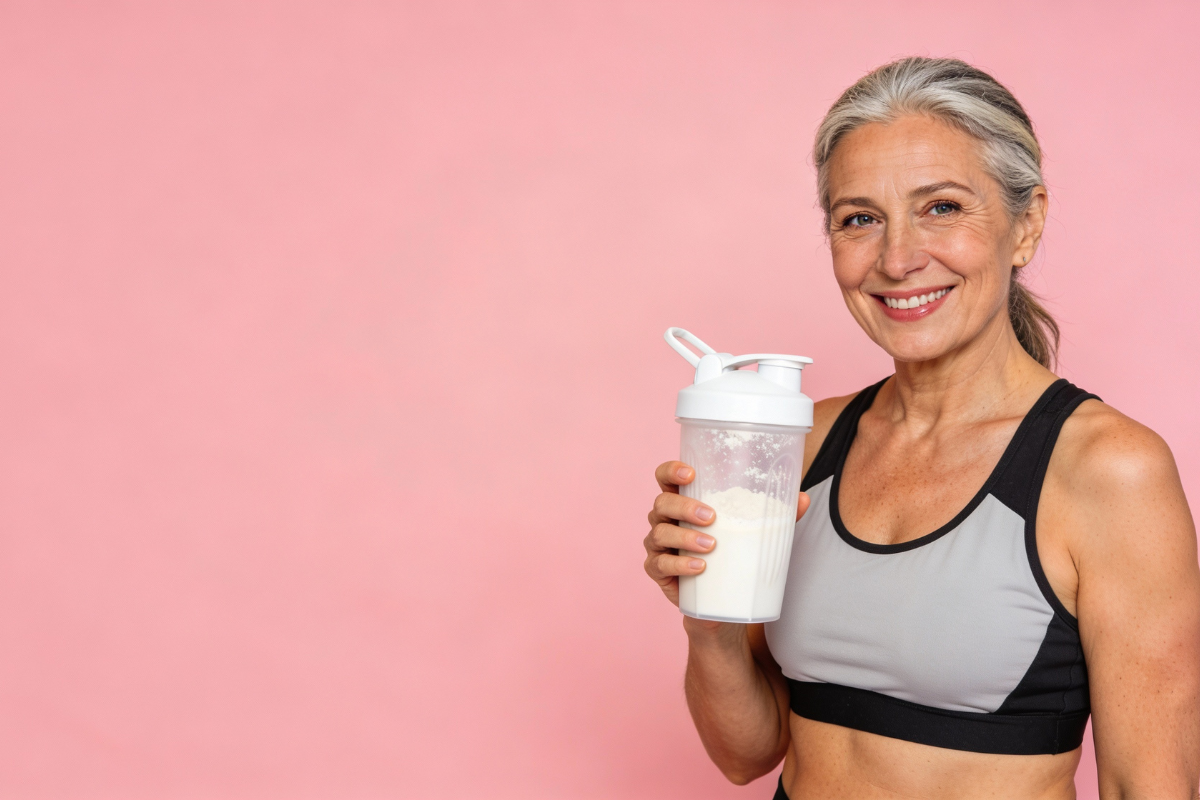What role does creatine play during the menopause?
Creatine supports the rapid production of ATP, essential for muscles and the brain.
Produced from amino acids, it regenerates phosphocreatine, a key energy reserve. This long-recognised mechanism remains fully validated by 2024-2025 research. In particular, it explains its effects on muscular performance, fatigue and cognitive functions.
Why do menopausal women lack creatine?
Compared with men, women have 70 to 80% lower endogenous creatine reserves.
What’s more, the hormonal drop associated with the perimenopause and menopause amplifies this difference. This physiological specificity explains why women often respond more strongly to the cognitive and emotional effects of supplementation.
Does creatine help preserve muscle during the menopause?
Creatine can help preserve muscle mass, but only when combined with resistance training.
For example, the landmark study by Chilibeck et al (2023), conducted on 237 post-menopausal women over 2 years, confirmed a significant increase in lean body mass with creatine exercise. However, in the absence of exercise, no significant muscle gain was observed.
Does creatine strengthen bones in post-menopausal women?
Contrary to popular belief, creatine does not increase bone mineral density in post-menopausal women.
In fact, the most robust controlled trials (2020-2024) show no effect on BMD of the femoral neck or lumbar spine. Some improvements relate solely to geometric bone parameters. However, there is currently no evidence of a reduction in the risk of fracture.
Why take creatine during the perimenopause?
The perimenopause (40-50 years) is a critical period of metabolic and cognitive vulnerability.
Hormonal fluctuations are often accompanied by mood disorders, early cognitive decline and changes in body composition. This is why recent data suggests that creatine could play a long-term preventive role during the post-menopause.
What effects does creatine have on the brain and mood?
Among the benefits observed, the cognitive and antidepressant effects are among the strongest in women.
In addition, a meta-analysis from 2024 shows a significant reduction in information processing time in women, with no equivalent effect in men. In addition, clinical studies indicate a faster and more marked improvement in depressive symptoms during the menopause when used in addition to standard treatments.
What dose of creatine should I choose during the menopause?
Dosing strategies are now moving towards greater personalisation, depending on objectives and digestive tolerance.
| Form | Dosage | Main benefits |
|---|---|---|
| Creatine monohydrate | 3-5 g/day | Strength, muscle mass (with sport) |
| Creatine hydrochloride | 750-1500 mg/day | Cognition, mood, digestive tolerance |
Is creatine safe for the kidneys?
According to the available data, creatine is considered safe for people in good health.
In fact, the 2025 meta-analyses confirm that there is no impairment of glomerular filtration rate. Although an increase in serum creatinine is sometimes observed, it remains physiological. However, vigilance is still recommended in people at renal risk.
FAQ : Creatine, perimenopause and menopause
Is creatine useful without doing sport?
Yes, for cognition and mood, but not for muscle mass or strength.
When do the cognitive effects appear?
As early as 8 weeks with low doses of creatine hydrochloride.
Is creatine suitable for the perimenopause?
Yes, this period could represent a key therapeutic window.
Is a loading phase necessary?
No, it accelerates saturation but offers no long-term benefit.
Scientific sources
- Impact of creatine supplementation and exercise training in older adults: a systematic review and meta-analysis
- Brain Creatine Levels in Perimenopausal and Menopausal Women (CONCRET-MENOPA)
- Oral creatine monohydrate supplementation improves brain performance: A double-blind, placebo-controlled, cross-over trial





